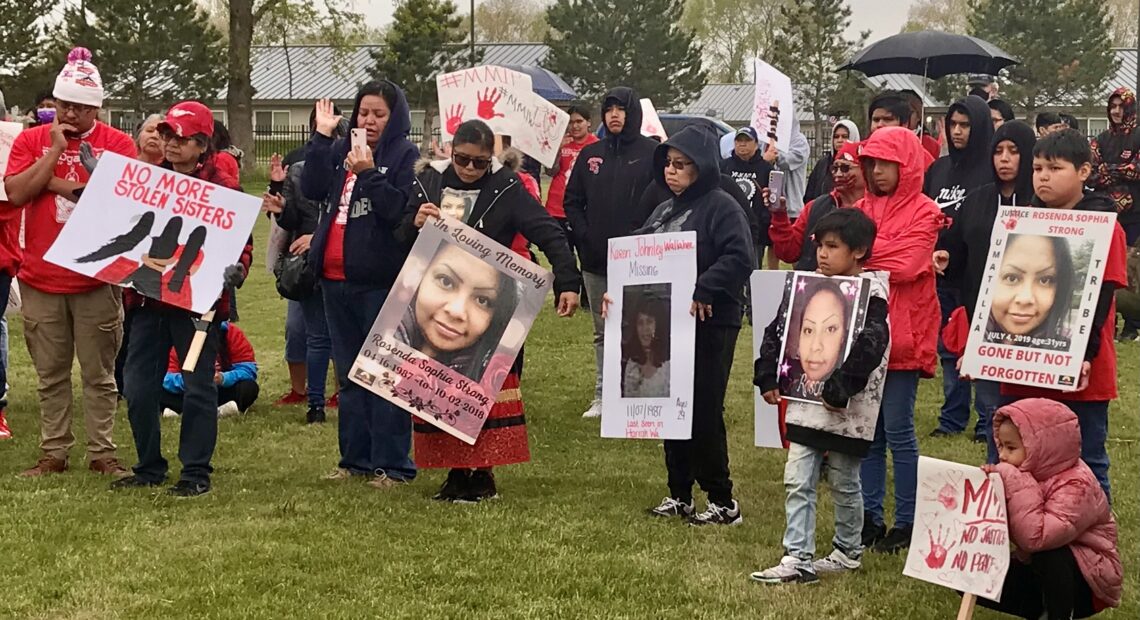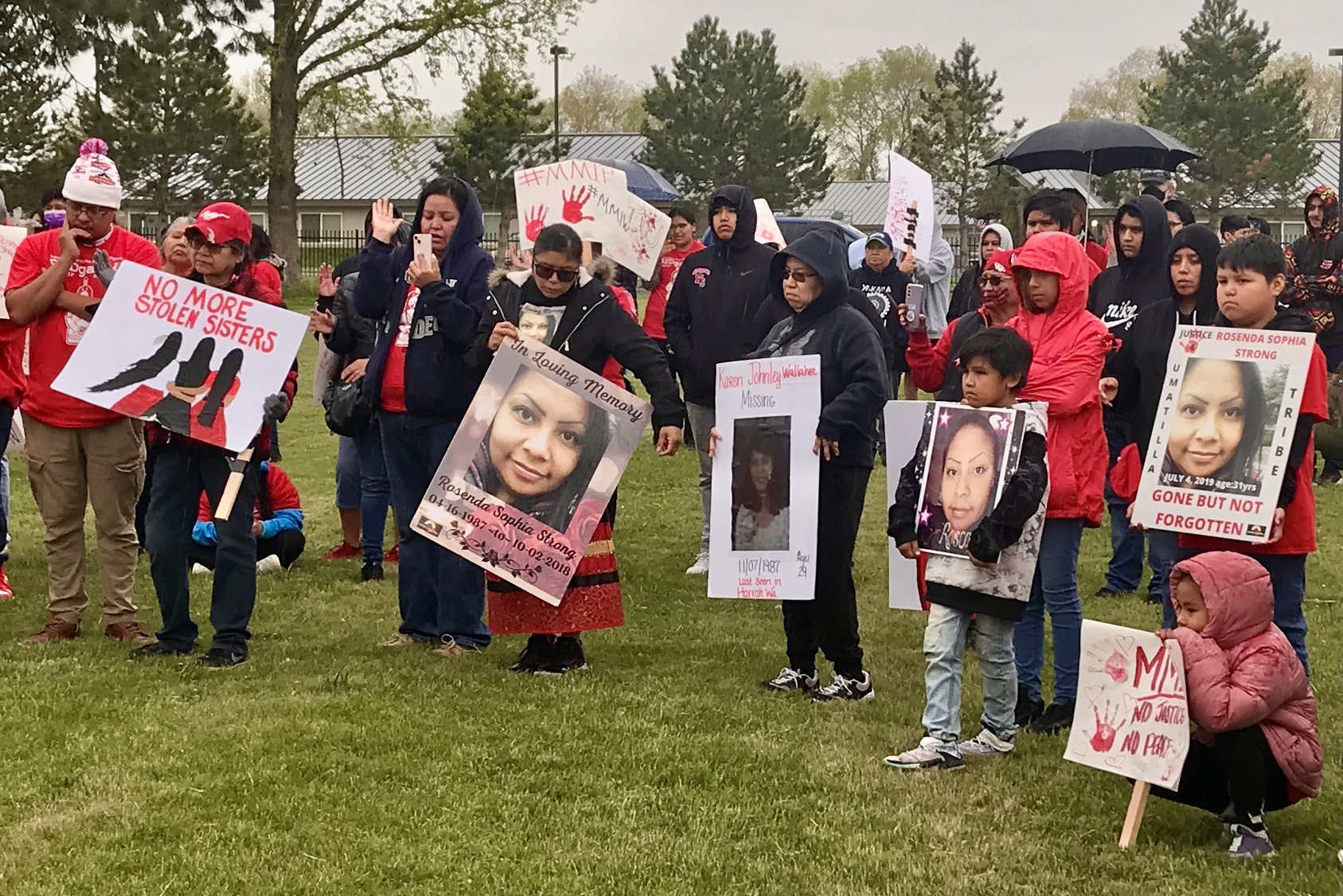
Washington establishes cold case unit to investigate missing and murdered Indigenous peoples cases
Listen
(Runtime 0:59)
Read
On April 20, Washington state Gov. Jay Inslee signed into law Substitute House Bill 1177 that establishes a cold case unit specifically for missing and murdered Indigenous women and people (MMIWP) in the state.
“This legislation will ensure that Indigenous victims of crime receive robust, thorough investigations and potential prosecution,” Inslee said.
University of Washington student athlete and activist Rosalie Fish, from the Cowlitz, Yakama and Muckleshoot tribes, said the unit could help families like her’s.
There are at least 113 missing Indigenous people cold cases in the state right now, including Fish’s cousin, Kaylee Nelson Jerry, who went missing in 2019.
“It would be my cousin and our family who would benefit from the missing and murdered Indigenous peoples cold case unit,” Fish said. “It would finally give voice to Indigenous family members who their missing persons have been silenced through violence.”
Fish has used her platform as a runner to shine a light on the MMIWP crisis. Fish said that a lack of urgency and disregard for the seriousness of cases from law enforcement, in the crucial time period after an Indigenous person goes missing, as was the case for her cousin, further aggravates this issue. Fish also works with the MMIWP department at Mother Nation, a Native-run nonprofit in Seattle.
“Creating a missing and murdered Indigenous peoples cold case unit gives light to the families that have been affected by this generational neglect from law enforcement and in general from our social services,” Fish said. “This would be the closest thing that we could get to restorative justice.”
Rep. Debra Lekanoff, (D-40th District) was the primary sponsor of the bill, which passed unanimously in the house and senate during the legislative session. Lekanoff is a co-chair on the state’s Missing and Murdered Indigenous Women and People Task Force, which recommended the legislation in 2022.
In anticipation of the signing, Lekanoff said, “We are striving each year to be able to incorporate more policies, laws, programs and funding to be able to address this crisis that our Washington tribes and tribes across the nation and Canada have been facing for over 150 years.”
As recommended by the MMIWP Task Force, the unit will provide additional resources to investigating agencies across the state and has the authority to investigate the full scope of MMIWP cases, including missing persons, unidentified remains and homicide cases. The task force wrote in its interim report from 2022 that the unit should be able to work directly with families of missing and murdered Indigenous people.
The permanent unit will be housed in the Washington State Attorney General’s Office. The unit will provide more capacity to the AGO’s work and bring closure to families, Lekanoff said.
“We have witnessed women who look like me, aunties, girls who look like me, grandmothers, go missing one after another with unresolved cases, unresolved attention from governing bodies,” Lekanoff said.
Now, Lekanoff said, Washington state is leading the nation and making missing and murdered Indigenous people a priority for the state.
















